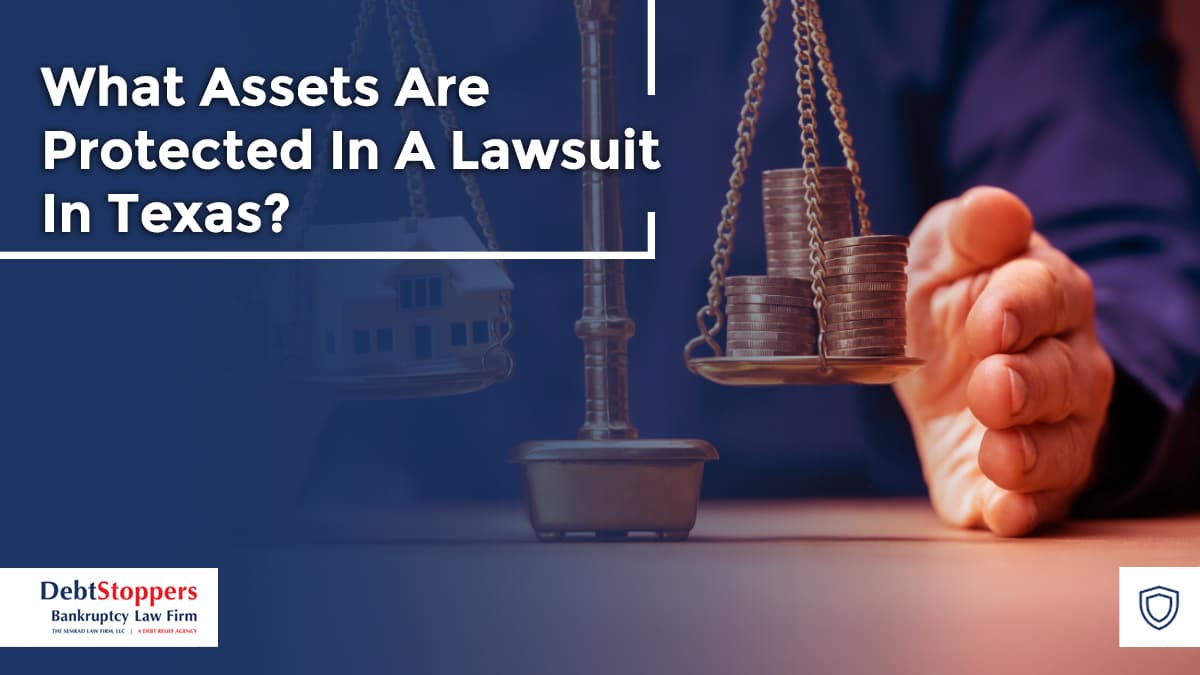What Assets Are Protected In A Lawsuit In Texas?

If you live in Texas and are concerned about potential lawsuits affecting your financial future, it's important to understand what assets are protected under Texas law. Whether you own a business or are simply looking to safeguard your family’s future, knowing what is legally shielded from creditors can help you make better financial decisions.
The good news is that Texas has some of the strongest asset protection laws in the country, however, they don’t protect everything. This blog will explain what assets are protected in a lawsuit in Texas and offer strategic tips for safeguarding your property.
Overview of asset protection in Texas
Asset protection refers to the legal strategies used to safeguard your wealth and property from claims made by creditors or lawsuits. In Texas, asset protection laws are favorable to debtors meaning the laws in Texas provide broad protections for certain types of property, giving residents an advantage when facing financial risk from lawsuits or judgments.
Texas is one of a few states that allows for 100% homestead protection, meaning your primary residence cannot be seized to satisfy most judgments. Additionally, Texas law provides exemptions for personal property, retirement accounts, and certain types of insurance policies. However, asset protection isn't just about relying on the law -- it’s also important to implement smart legal strategies before any claims arise.
Which assets are protected in a lawsuit in Texas?
Texas offers a comprehensive list of exemptions for property that is protected from creditors. The main categories of assets typically protected in a lawsuit include personal property, retirement accounts, and certain insurance policies.
Personal properties
Under Texas Property Code Section 42.001, personal property up to a certain value is exempt from seizure. For a single adult, the exemption limit is $50,000, and for a family, the limit is $100,000. This personal property exemption can include home furnishings, clothing and jewelry (up to a certain value), tools for a trade, motor vehicles (one per licensed household member), firearms, pets, and some livestock.
While these exemptions are not unlimited, they provide broad coverage for most everyday items people use and need. Valuation plays a key role since items are protected up to their fair market value, not the purchase price.
Retirement accounts
Retirement accounts are another area where Texas provides robust protection. Under both federal and state laws, qualified retirement accounts are generally exempt from creditors, including 401(k) plans, 403(b) plans, traditional and Roth IRAs, pension plans, and government retirement accounts. Typically, if you are sued, your retirement savings are off-limits to creditors, making retirement accounts an effective tool for long-term asset protection.
Insurance policies
Certain insurance benefits are also protected under Texas law, including life insurance case value/death benefits, annuities, and health/accident insurance benefits. However, it’s important to understand that the protections may depend on the policy structure and the named beneficiaries.

Strategies for asset protection
While Texas law provides a solid foundation of exemptions, you may want to consider proactive strategies for asset protection in Texas including creating an asset protection trust, investing in retirement accounts, and changing the title of assets.
Create an asset protection trust
One of the most effective legal tools for shielding assets is an asset protection trust. These are irrevocable trusts designed specifically to place assets beyond the reach of creditors. In Texas, Domestic Asset Protection Trusts (DAPTs) are not currently recognized in the same way they are in some other states, but a properly structured trust set up in a favorable jurisdiction can still offer protection.
It’s important to note that trusts must be set up before any legal threats arise since transferring assets after a lawsuit is filed can be considered fraudulent and may be reversed by a court.
Invest in retirement accounts
Because retirement accounts offer strong protections, it is advantageous to maximize contributions to your retirement accounts. By fully funding your 401(k) or IRA, you're not only saving for the future but also placing those funds in a legally protected structure. This is a particularly effective strategy for professionals who are more likely to be targeted in lawsuits.
Changing the title of assets
Another option to consider is changing the legal ownership of certain assets. For example, transferring property to a spouse or placing it in a limited liability company (LLC) can provide a degree of protection. Real estate used for investment purposes may be better held in an LLC or family limited partnership (FLP), which can protect it from being directly targeted in personal lawsuits.
It’s important to keep in mind that timing matters since most asset transfers that occur when legal action is already pending or anticipated may not be upheld.

Contacting an asset protection attorney in Texas
Asset protection is a complex and highly individualized area of law. While Texas laws offer strong built-in protections, it’s important to fully understand the limitations and risks involved. A qualified asset protection attorney can help you evaluate your current financial situation, identify vulnerable assets, recommend appropriate legal strategies, and help ensure all actions are compliant with state and federal laws.
At DebtStoppers, we understand how important it is to protect what you’ve worked hard to earn. Our legal team specializes in helping Texans safeguard their property through bankruptcy law and customized asset protection strategies. Whether you’re facing a current legal threat or planning ahead, we’re here to help.
Contact DebtStoppers to schedule a free consultation with an experienced asset protection attorney in Texas. Take the first step toward securing your financial future and protecting what matters most.





